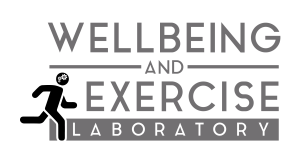
The Wellbeing and Exercise Laboratory (WellEx) is focused on understanding how exercise, physical activity, and sedentary behavior influence mental health and wellbeing. Our overall goal is to help people change behavior to improve their psychological health and reduce the impact of mental health concerns (e.g., depression, anxiety, chronic pain, fatigue, etc.). We look at the psychological effects of single sessions of exercise, chronic exercise training, regular physical activity, and high sedentary time. The WellEx lab collaborates with others to better understand what underlying factors (e.g., BDNF, endocannabinoids, IGF-1, cerebrovascular functioning) could be mechanisms that mediate exercise’s psychological effects.
RESEARCH QUESTIONS
- How does exercise, physical activity, or movement change the way people are thinking and feeling?
- What are the best intervention programs using activity to prevent or treat mental health conditions?
- For example, current project lines examine exercise as an augmentation strategy for therapy as well as resistance exercise as a potential treatment for depression.
- How do acute and chronic exercise influence mental health? What can we learn from acute exercise settings that can help us plan and deliver optimized exercise training programs for mental health?
- What is the optimal dose of exercise for improving mental health?
Our new lab is growing, and we plan to hire additional research staff (postdoctoral research fellow, project coordinator, etc.) and bring on undergraduate students who may participate in credit or non-credit programs to help in various aspects of running research studies (e.g., recruitment, data collection, data processing, etc.)